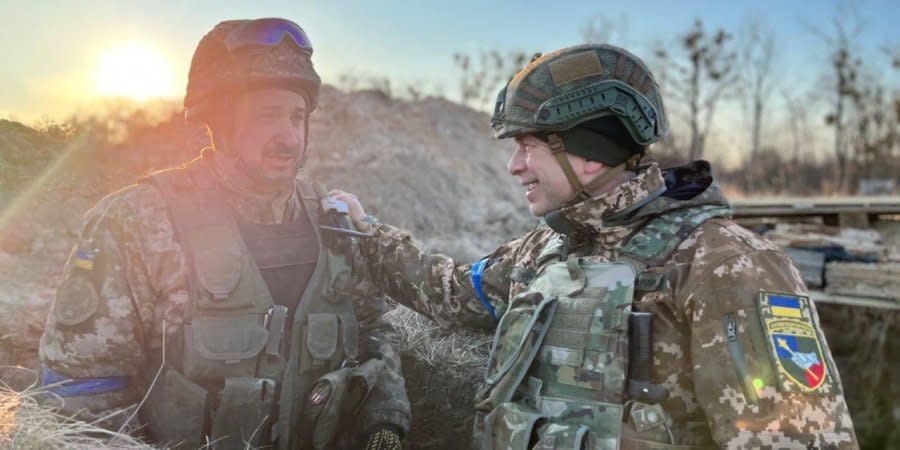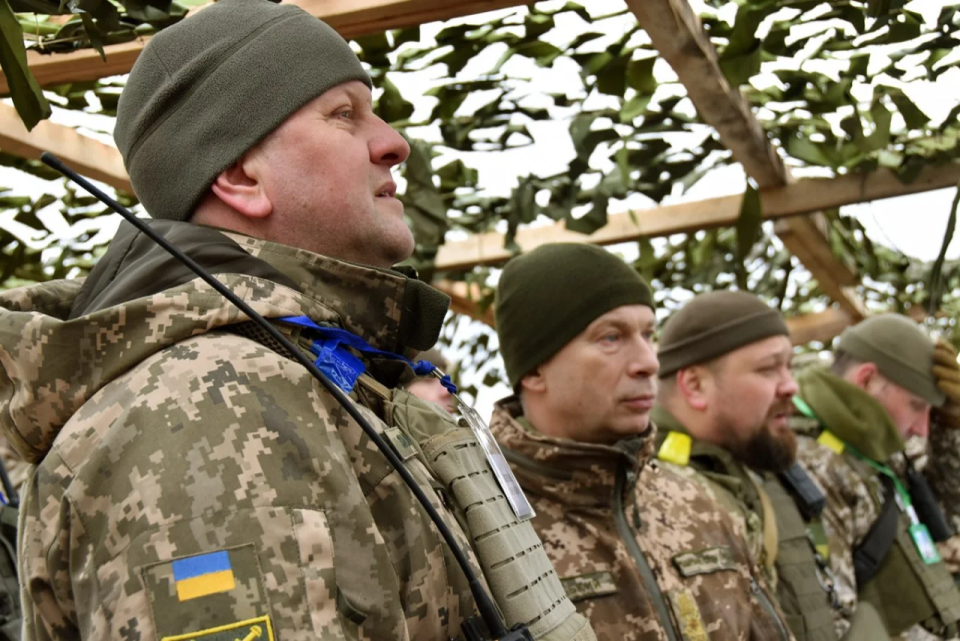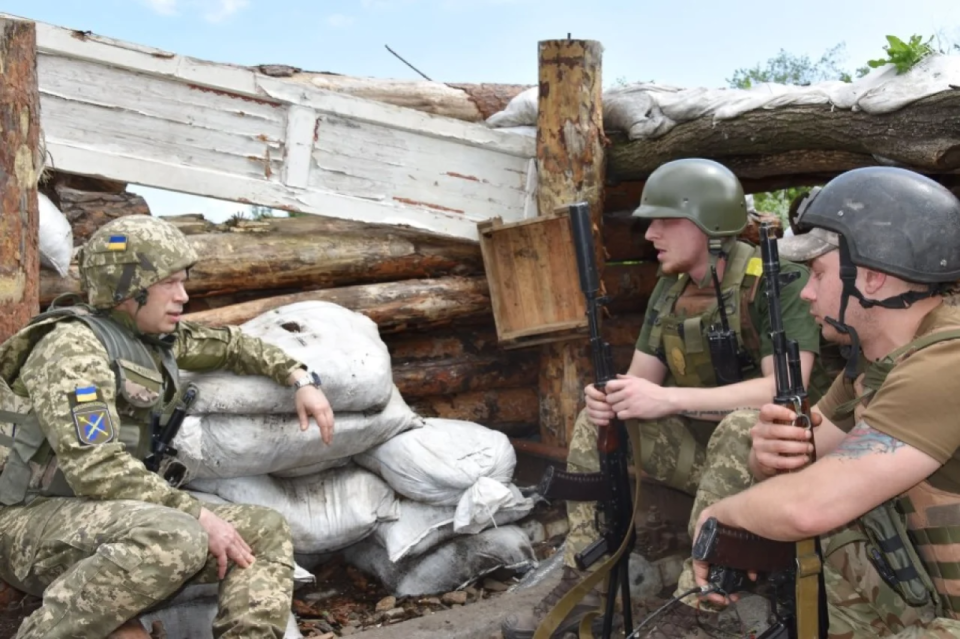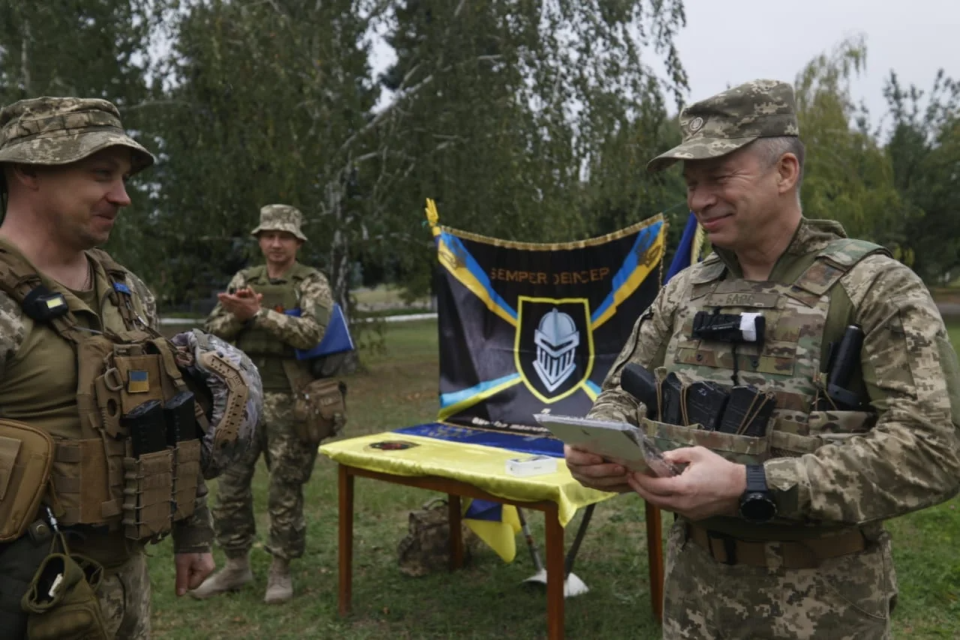How Colonel-General Oleksandr Syrsky became an architect of Ukrainian victory

In both cases, the merits of Syrsky, along with a number of other commanders of the Armed Forces of Ukraine, have been officially recognized by the Ukrainian Ministry of Defense.
“Pedantic and thoughtful, Colonel-General Oleksandr Syrsky is one of those experienced officers who prepare for all unforeseen circumstances,” The Washington Post recently wrote about him.
Read also: Ukraine's President Zelensky, Commander-in-chief Zaluzhny land on Time 100 influencers list
“Even to those scenarios that he himself considers extremely unlikely.”
NV explains the story of a Ukrainian military leader who has been leading the defense of Ukraine from Russian invaders at various levels for more than eight years, and who is being observed with increasing attention by the world press.
“The Oscar of military glory belongs to them”: Syrsky as a co-author of Ukraine’s new victories in the east
“The Colonel-General who gives hope to Ukrainians” is how journalists from the German newspaper Spiegel described the 57-year-old Syrsky, in their recent article about him.
On Sept. 9, in the midst of Ukraine's rapid offensive in Kharkiv Oblast, the Ministry of Defense of Ukraine named him as one of Ukraine’s leading lights of victory on every axis - "The Atlantes who hold the operation on their shoulders,” referring to the ancient Greek legend of the god responsible for carrying the planet on his shoulders.
“There are no main or secondary actors in our struggle,” wrote Deputy Defense Minister Hanna Malyar.
“Ukrainians together write the lines of the history of our Great Liberation War. And yet there is a special category for masters of their craft. The Oscar of military glory belongs to them. This is about our command of the Armed Forces of Ukraine and the commanders who today in the east and south of the country are accurately and purposefully beating the Russian invaders.”
Among these figures, Malyar listed four people who are characterized by "authority, charisma and non-standard approach in the preparation for hostilities":
Read also: General Zaluzhny proves best choice for Armed Forces, president and nation
Commander-in-Chief of the Armed Forces Valerii Zaluzhny
Chief of the General Staff of the Armed Forces of Ukraine Serhiy Shaptala
The commander of the defense operation in the east of Ukraine Oleksandr Syrskyi
The commander of the defense operation in southern Ukraine Andriy Kovalchuk
The day after this publication, on Sept. 10, the Ministry of Defense published a video in which Syrsky participated in a flag-raising ceremony in the liberated town of Balakliya, and congratulated Ukrainian soldiers on the liberation of the first large settlement during the operation in Kharkiv Oblast.
“I am sure that this is not the last city (to be liberated): we have Kupyansk ahead of us, which is already half taken by our troops, ahead of Izyum and many others,” Syrsky said even before these cities were actually liberated. Spiegel noted that he celebrated the liberation of Balakliya "without pomp and euphoria, but with pride and relief."
On Sept. 14, Syrsky, together with President Volodymyr Zelenskyy, attended a similar ceremony in Izyum.
Meanwhile, international media outlets have begun to report that the 57-year-old military leader is allegedly one of the people who proposed key ideas for the Kharkiv Oblast breakout.
“It is said that Colonel-General Syrsky had a plan to distract the Russians with a long-announced major offensive in the south in Kherson Oblast in the hope that they would withdraw troops from the eastern front,” writes Spiegel, while noting at the same time that this information is unconfirmed.
Read also: Ukraine’s General Staff explains reasons behind Russian invaders’ refusal to fight in Ukraine
“Allegedly, it was Syrsky who identified a weak spot in the Russian defenses near Balakliya.”
This narrative has also spread into Ukrainian media, partially thanks to a post made by political strategist Oleksiy Holubotsky - who is previously known for doing "PR for a number of politicians." Holubotsky also said in a Facebook post that Syrsky allegedly needed to convince other military leaders that the plan was viable. However, the Ministry of Defense has made it clear that such statements are nothing more than unfounded rumors.
“I see that some authors on social networks are writing about the details of planning military operations and making decisions as if they also have access [to state secrets] and as if they have the legal permission to distribute it,” Deputy Minister Malyar wrote on Sept 15.
“Of course, I would contact law enforcement agencies to find the person who “leaks” these state secrets. But so far they write only fiction and gossip. So far, no one has told “opinion leaders” and Telegram channels how it was in reality, and this is good.”
The editor-in-chief of Censor.NET, Yurii Butusov, when commenting on the successes of the Armed Forces of Ukraine in Kharkiv Oblast to Radio NV, suggested that this offensive operation was a “collective decision”.
“The skill of Ukrainian command should be noted,” he said, recalling the strategic significance and scale of the operation.
"The key contribution was made by Commander-in-Chief Valerii Zaluzhny. Because without his initiative, without his actions, all this would be basically impossible.”
According to him, Oleksander Syrsky most likely carried out the operational management of the operation.

“Syrsky is the commander of the defense forces,” Butusov explained.
“He is a well-known person and one of the leaders of our army. […] If we judge by the result, then this is a very high level of management. Undoubtedly, this is a masterful operation.”
Reforming the army and eight years of command in the ATO/JFO: the biography of Oleksander Syrsky
Oleksander Syrsky received his first military education back in Soviet times in Moscow, where in 1982 he graduated from the Moscow Higher Combined Arms Command School. Spiegel called this detail of his biography "one of the bitter ironies of the present war".
Syrsky has been serving Ukraine since the first years of its independence. Already in 1996, the future commander of the Ground Forces graduated from the Academy of the Armed Forces of Ukraine, and in 2005 - the National Defense Academy of Ukraine, receiving the highest marks in both universities.
Throughout the years, Syrsky was gradually entrusted with increasingly large-scale and responsible tasks: he went from a platoon commander to one of the key figures in the course of the ATO / JFO, and then to overall ground commander during the course of the full-scale Russian war.
In the 1990s, Syrsky commanded one of the brigades of the 6th Division of the National Guard of Ukraine in Chuhuiv. Later he became the commander of the 72nd Separate Mechanized Brigade in Bila Tserkva.
Shortly before the Revolution of Dignity, it was Syrsky — at that time was already the first deputy head of the Main Command Center of the Armed Forces of Ukraine — who was one of the key figures involved in deepening NATO-Ukraine cooperation, and in overseeing the military’s upcoming reforms. He was involved in the development of a strategy for the transition of the Armed Forces of Ukraine to the standards of the Alliance.
After the flight of ex-president Viktor Yanukovych from Ukraine, the annexation of Crimea and Russia's invasion of Donbas in early 2014, Syrsky took up the position of chief of staff of the Antiterrorist Operation (ATO) — what the Ukrainian government called the front line against the Donbas puppet authorities.
Even then, the general had the opportunity to study the enemy in combat conditions: Syrsky was one of the key Ukrainian commanders during the most difficult battles for the Debaltseve bridgehead in January-February 2015. At that time, according to the Defense Express news outlet, he led Ukrainian units during the fighting in Vuhlehirsk, the village of Ridkodub and during the attempt to recapture Lohvynove, and also coordinated the Bars group, which covered the withdrawal of Ukrainian troops from the city of Debaltseve itself. For participation in those battles, Syrsky was awarded the Order of Bohdan Khmelnitsky 3rd degree. He later received the rank of lieutenant general.
Syrsky was actively involved in the defense of Ukraine from Russian invaders not only during the period of the most heated battles, but throughout the eight years before the full-scale invasion.
In 2016-2019, he was the head of several high-level departments, including the Joint Operational Headquarters of the Armed Forces of Ukraine (twice in different periods) and the commander of the Anti-Terrorist Operation and the Joint Forces Operation (JFO) in the Luhansk and Donetsk oblasts (May-August 2019).

Three years ago, on Aug. 5, 2019, Syrsky was appointed commander of the Ground Forces of the Armed Forces of Ukraine. He still holds this position, and in this role, the Colonel-General met the day of the full-scale invasion on Feb. 24, 2022.
AS the head of the Ground Forces, Syrsky continued reforms that eventually helped the Ukrainian army to be more flexible on the battlefield and go ahead in its development — much further than their Russian counterparts.
Among these reforms has been the transformation of military command and control bodies in the Ground Forces.
“There has been a separation of the functions of formation, training, development of troops, technical equipment and comprehensive support from the functions of management and control,” Defense Express explained back in 2020 in one of its articles about Syrsky.
“This is fundamentally different from what was envisaged by the Soviet command and control system, which until recently guided the Ukrainian army. With this distribution, when everyone specializes in specific things, you can achieve much more efficiency at each of these levels.”
“The starting point is saving the lives of the defenders of Ukraine”: quotes from Oleksander Syrsky about the war and the Armed Forces of Ukraine
Although international media outlets often refer to Syrsky as a non-public military leader who rarely communicates with the media, even before the Russian invasion in February, the Colonel-General repeatedly shared his vision of the development of the military and the situation at the front with the Ukrainian military and defense publications. From several interviews of Syrsky in recent years (with Army FM, Army Inform, as well as a series of interviews for Defense Express), we have collected a number of his most iconic quotes. All of these statements were made before February 2022.

“Combat training is the basis of the combat capability of the troops […] It was the experience gained during the confrontation with the Russian aggressor that allowed us to look at combat training in a more practical way and work out a new system that would allow us to quickly rethink acquired combat experience and implement it in training.”
“For me, as the commander of the Ground Forces, the extreme importance of the information component in a hybrid war is more than obvious […] We are constantly developing the information warfare system itself, and have created a permanent structure of information monitoring and counteraction. This is the most important direction, along with the training of troops.
“Donbas is used by the invaders as a testing ground for testing the capabilities of modern Russian weapons and military equipment.” [on the ATO/JFO period]
“The Armed Forces of Ukraine are among the few armies in the world that have successful experience in confronting the army of a nuclear state. Keep in mind that we operate in a field where the most modern means of reconnaissance are used, REM and EW, communications, UAVs, armored vehicles, high-precision equipment and others. With this in mind, we must constantly improve further - improve our knowledge, skills and abilities of our fighters, the coherence of crews, units and formations, as well as saturate combat units with modern weapons and military equipment. We must oppose the qualitative and technological advantage to the enemy, taking as a starting point the maximum preservation of the lives of the defenders of Ukraine.”
"Our soldiers are capable of performing any tasks in any conditions and situations. I really often go to positions, platoon strongholds, and observation posts. Firstly, I want to see the real state [of affairs] with my own eyes. Secondly, in communication with our military personnel, I see their mood, their needs, and I have the opportunity to provide for them faster. Thirdly, I feel that this is necessary for our fighters.”
“The human factor always plays a major role in the implementation of any tasks. And at that time [during the defense of the Debaltsevo bridgehead] it was also of great importance for us, because it was the readiness of our personnel to carry out tasks in the face of such tough opposition from the enemy, in the face of constant shelling, that determined whether we were able to complete the tasks or not."
“Ukrainians know the price of peace, because they have repeatedly known the horror of war on their land, most often in those times when they were divided, or they forgot about the deceit of enemies and the instructions of their ancestors.”
Read the original article on The New Voice of Ukraine

